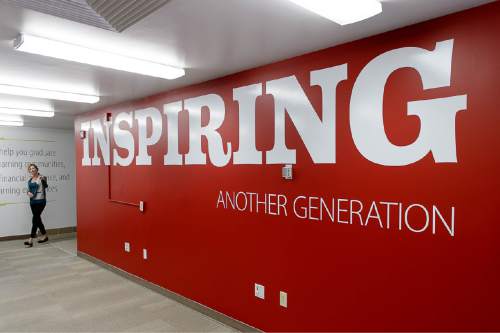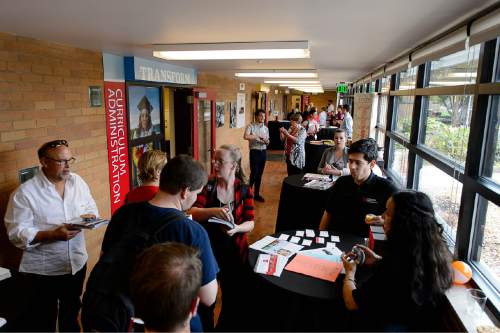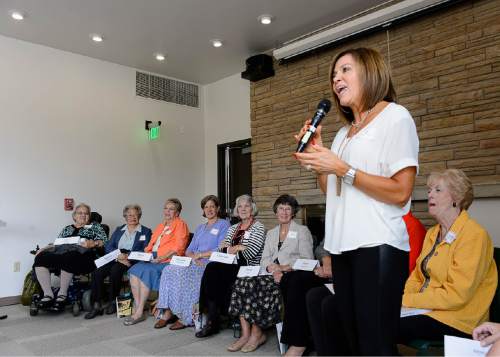This is an archived article that was published on sltrib.com in 2015, and information in the article may be outdated. It is provided only for personal research purposes and may not be reprinted.
Forget the casseroles and the pedal-powered sewing machines: Home economics is getting an upgrade.
Part of a new $200 million "student success" initiative at the University of Utah, the Sill Center, built in 1952, is re-opening as a "living and learning community," with a focus on real-world learning projects, U. President David Pershing announced Tuesday.
It's a return to its roots — sort of.
For Kit Young and fellow home economics majors of an earlier generation, the Sill Center was a dorm that doubled as a classroom. A simulated household, it was where students learned to cook, budget, entertain, weave and reupholster.
"They were all valuable things. Social graces. Where else do you learn that anymore?" said Young, who returned to her former college home Tuesday for the re-opening, 50 years after graduating from the U.
Young double-majored in education and went on to teach at Salt Lake City's South High. She and her husband, Don, also had their wedding reception at the Sill Center in 1966. "It was a place I really enjoyed."
Students who lived there got course credit for a host of tasks, such as successfully balancing checkbooks and planning meals. They also had to keep rooms tidy in case advisers dropped in.
On Tuesday, a panel of former Sill tenants recounted their years living in the house, when they prepared scallops and scrambled to clean up overflowing tubs in advance of formal dinners.
For Haruko Moriyasu, the opportunity was more than hostess training or a chance to make close friends. Her Sill adviser at the time convinced Moriyasu and her classmates to earn graduate degrees, she said.
"For women, especially," Moriyasu said, "I think that's important."
The Sill Center's mid-century architecture is intact, but solar panels are on the roof and the student garden now has a weather station.
The new $200 million program will support a host of scholarships, fellowships and "hands-on" programs such as study abroad and community service.
The new funding for hands-on programs was welcome news to Aliya Khan, a junior majoring in philosophy and Arabic. Khan, who is from South Jordan, was gearing up to give a presentation to visitors on different Muslim nations' perspectives on such bioethics issues as in vitro fertilization. She hopes the initiative will fund more student research.
"It's creating students that are going to branch out, reach out after graduation," said Khan, who studied abroad in the Persian Gulf nation of Oman, "rather than stay in their immediate surroundings."
Pershing and other top administrators said the center will emphasize the importance of social responsibility and conservation in a world with limited resources.
Twitter: @anniebknox







